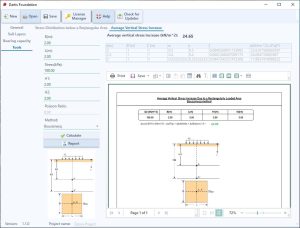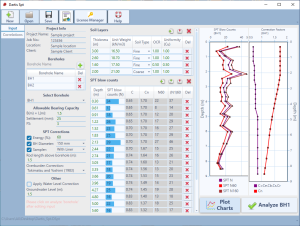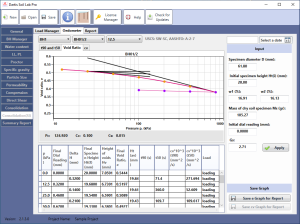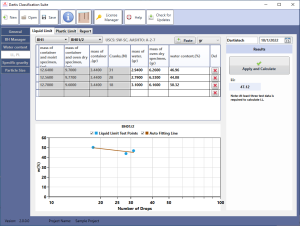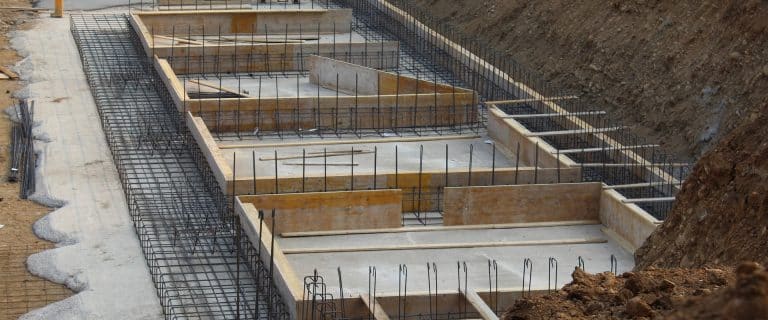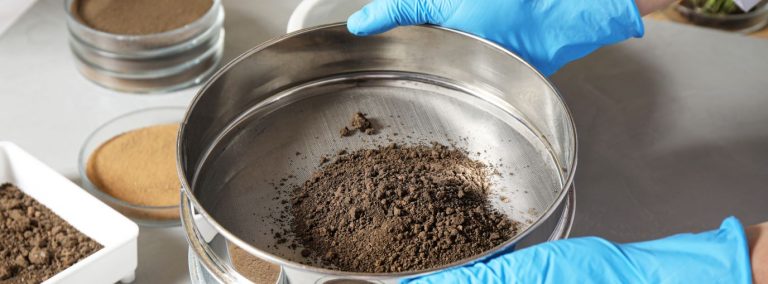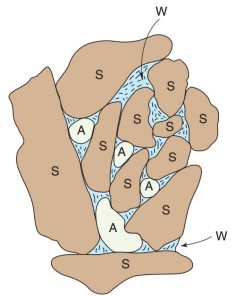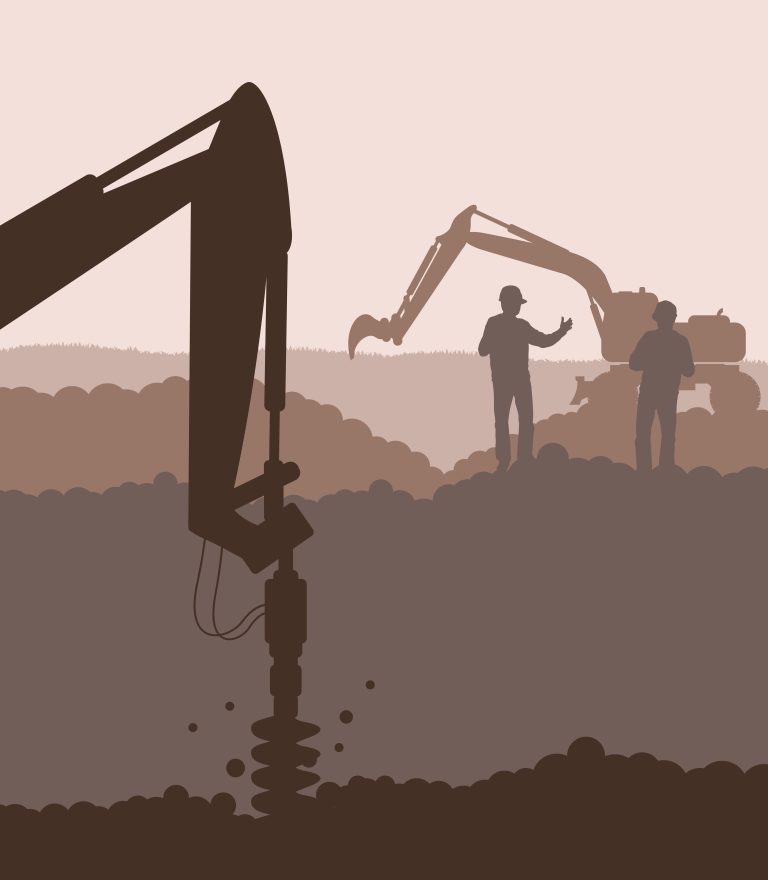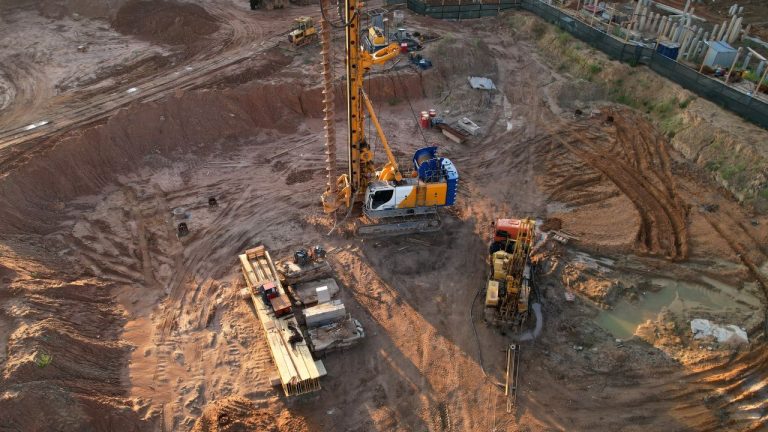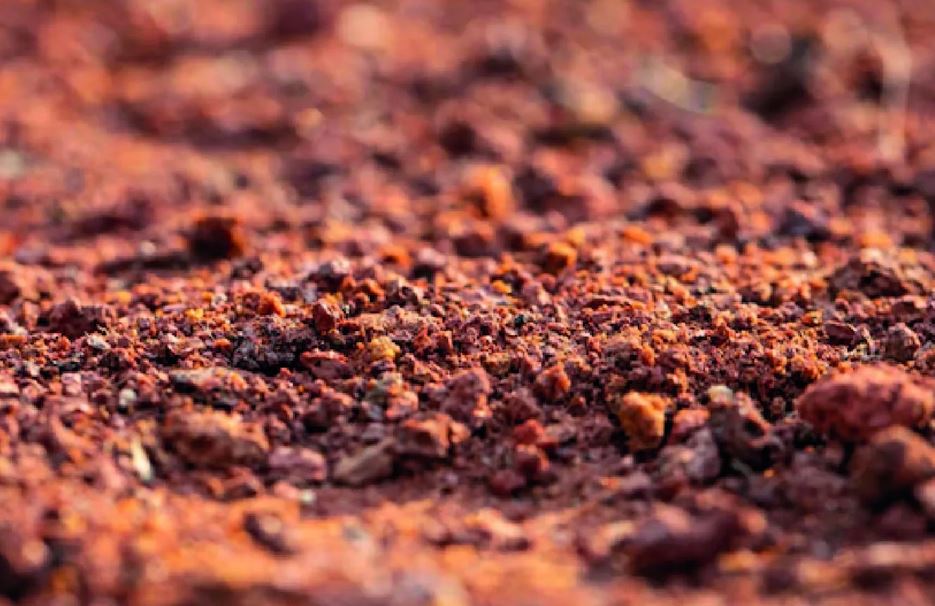
Soil testing refers to a set of tests that are carried out to check the physical and chemical characteristics of soil in different geographies. Conducting this test is necessary to build a building resistant to various risks such as earthquakes, subsidence, etc., and on the other hand, there are mandatory laws to do it. Of course, not all projects need to do soil test.
This test, which is extremely important in the agricultural industry in addition to the construction industry, will extract very important information such as acidity, shear strength, grain size, weight bearing limit, density, soil permeability and many other factors. The data obtained from this test can guide civil engineers to design the best model to build a standard and earthquake-resistant building. But these are not the only applications of soil testing; Join us to review the most important applications of soil test.
Table of Contents
Applications of soil testing
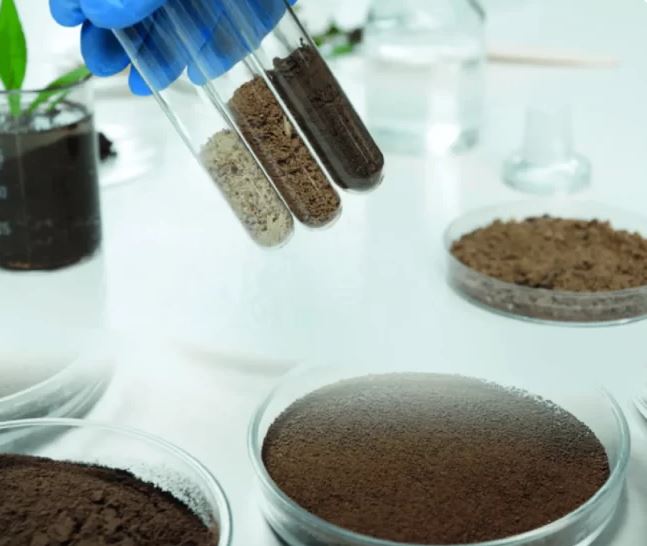
Among the most important applications of soil testing, we can mention the following:
- Determining the amount and type of materials you need to build a resistant and standard building
- Helping design engineers and accountants to determine the exact specifications of your project
- Determining the path to retrofit the building Against earthquakes
- Identifying the constituent elements of the soil and the type of soil
in general, it can be said that in large projects, there will be no other way than conducting a soil test to build a standard structure.
In any case, if your construction project is medium or large, we suggest you to do soil test; Because it will have a great impact on your use of the most appropriate type of materials and to the best extent.
Types of soil tests
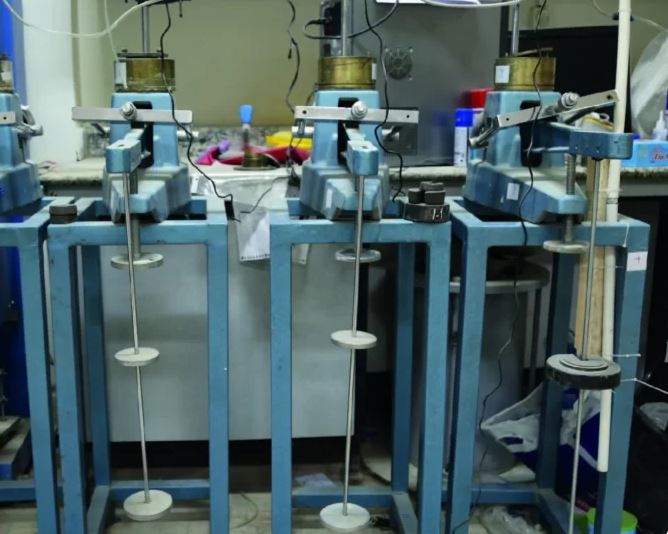
As we explained in the introduction of the article, soil testing is not just one test, and in fact, several different tests are included under it. Below is a list of these tests for you. It should be known that it is not necessary to do all of them all the time and in many cases.
The result of this test depends on various factors such as soil type, relative density, stress history, etc., and the higher the number, the higher the hardness and density of the soil.
Among the other factors that make this test necessary is the effect of its result on estimating the results of other tests such as density, adhesion, overconsolidation ratio, internal friction angle, modulus of elasticity, etc. Dartis SPT is a powerful, user-friendly software for correlating soil properties from SPT blow counts.
Due to the simple form of performing this test, its cost is very low. The method of doing it is that a weight with a mass of 63.5 kg is released from a distance of 76 cm from the soil surface. Next, they count the number of blows that lead to the penetration of the weight at a certain depth of the soil, and in this way, the soil permeability rate can be determined.
Also, the output of this test will have a great effect on determining the type of soil. In the rest of the article, you will get to know the meaning of soil type and its types.
Because most of the time, SPT testing or standard penetration testing is done in drilled chambers that have been created for other purposes, it is among the least expensive tests
Sand Equivalent (SE) Test
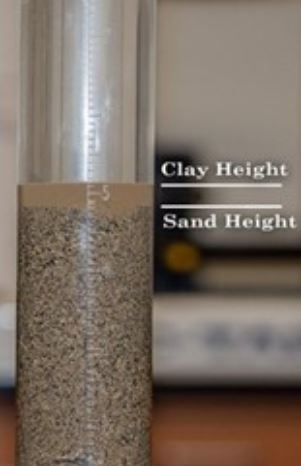
This test is one of the tests that will guide you in using the right materials.
This test is basically done to measure the quality of sand in the soil; On the other hand, this test will determine how many percent of the soil of an area is sand, and it will also determine the amount of water absorption by fine grains and their swelling due to water absorption.
This test will allow you to measure the exact amount of sand required for use in concrete.
Using too much or too little sand compared to the amount of sand in the soil can have serious consequences for your building; Because this issue will have a direct effect on the density of concrete, its resistance to weathering, and the permeability of concrete.
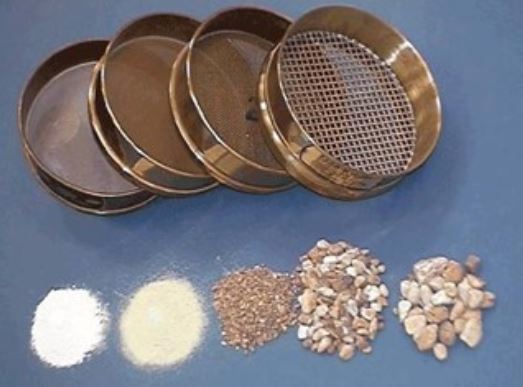
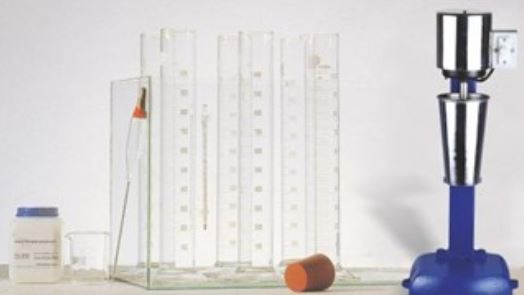
This test is also among the necessary tests and is used to determine one of the most important factors of the soil, i.e. its granularity.
This soil test is performed in three different ways based on the size of the soil particles and its constituent elements:
●1st category: for soils where more than 90% of the particles are larger than a 200 sieve. This category of soils is tested in two ways: dry and wet.
In the dry method, several sieves are placed on top of each other, then the soil is added to the highest sieve and the vibrating device moves all the sieves. This work will continue until the soil is completely sieved. Then, with the help of very accurate scales, the residue in each of the sieves will be measured.
In a better way, the same process is done with the help of water pressure. Water enters from the highest sieve downwards with great pressure and continues until the water exiting from the last sieve is completely clear.
After finishing the work, the particles of each of the sieves are weighed.
● Second category: For soils where more than 90% of the constituent particles are smaller than 200 mesh, the term hydrometer is actually used for this soil testing method. In this method, a hydrometer testing device that works based on Stokes’ law is used for soil granulation.
● Third category: For mixed soils,
if the soils of a region are not in any of the above two categories, they are granulated in this way: fine and coarse particles are separated from each other; The fine particles will be granulated with the help of a hydrometer device and the coarse particles will be granulated using a sieving method (dry or wet).
Direct shear test
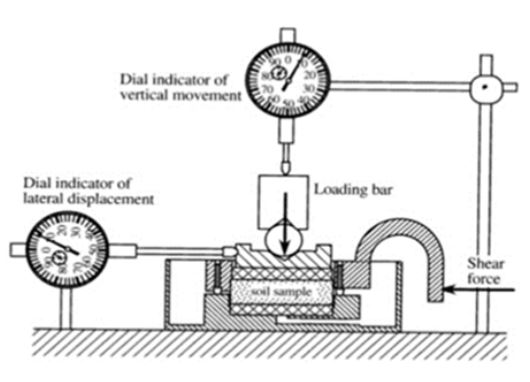
This test is also included in the category of important tests; Because it is very effective in geotechnical calculations.
Among these issues, we can mention the calculation of the lateral pressure of the soil, the stability of the slopes, the bearing capacity of the foundations, etc. This test is very inexpensive and is done at the project site (rather than in the laboratory).
In this test, it is checked how much the soil can withstand vertical stresses and where is its breaking limit.
Permeability test through falling or constant water load test
These two tests are used to accurately determine the permeability coefficient of the soil. Of course, none of them are included in the list of essential tests.
Consolidation test
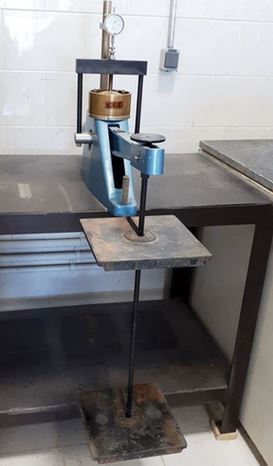
The purpose of this test is to check the range of pressure that the soil can withstand without deformation and settlement.
This important and necessary test provides engineers with an accurate coefficient of soil settlement and allows them to design and build the building without entering the soil settlement range.
Compaction test
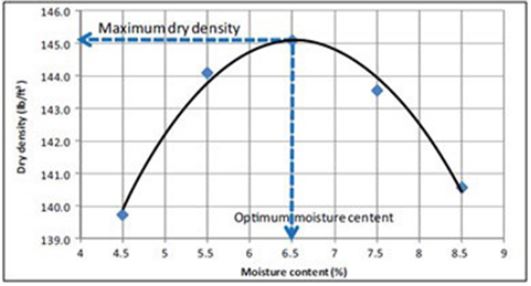
This soil test, which is of great importance, is performed to check the reaction of the soil against compaction forces and to accurately measure the density of the soil.
This test will help engineers to find the optimal soil moisture content.
Soil Laboratory Testing Software
Do you want to manage your soil tests by a single software? Dartis Soil Lab helps you process lab test data and prepare professional reports. You can quickly set up a borehole and it’s samples in Dartis Soil Lab and start entering your Lab data. Dartis Soil Lab will do the calculations.
In addition to various lab. testing reports, Dartis Soil Lab provides list of boreholes and summary of lab. test results reports.
AASHTO and USCS soil classifications for a soil sample will be determined by Dartis Soil Lab when sieve test data is entered. Explore the extensive features of Dartis Soil Lab and download a trial version today.
What is the soil type?
Soil type is used to classify types of soils based on their resistance to earthquakes.
In determining the final type of a soil, the results of tests such as direct shear and triaxial are very important.
Soils are divided into four different types; Type one is the most resistant soil type against earthquakes and type four is the most vulnerable.
Soil typing is one of the most important functions of soil testing; Because its result is directly dependent on the amount of materials needed to strengthen a building against an earthquake.
For example, the cost of retrofitting an apartment built on type three soil may be several times higher than a similar apartment built on type two soil. Therefore, you can consider this issue as an effective category in buying land.
The price of soil testing depends on what factors?
Now we can examine the factors affecting the cost of soil testing.
In general, we can say that the cost of soil testing is related to the type of drilling method, the number and depth of boreholes, as well as the location of drilling, each of which we will review below:
Drilling method (manual or machine)
This item can also be called “the amount of time and difficulty of drilling”.
For example, drilling dense soils is very difficult and time-consuming than less dense soils, and the same issue can be extended to the type of soil, the level of underground water, the level of local accessibility for moving drilling equipment, and other things.
Each of these will affect the final cost of soil testing.
The number of boreholes
A borehole is a hole with a diameter of 5 to 25 cm that is created in the ground and goes down to a depth of several meters so that a suitable soil sample can be taken from it.
The higher the number of boreholes, the higher your cost; But the cost of creating each borehole in large projects will be lower than in small projects.
The larger your plot, the more boreholes you will need.
Drilling depth
The deeper the boreholes, the higher the cost of drilling and therefore the overall cost of your soil test.
